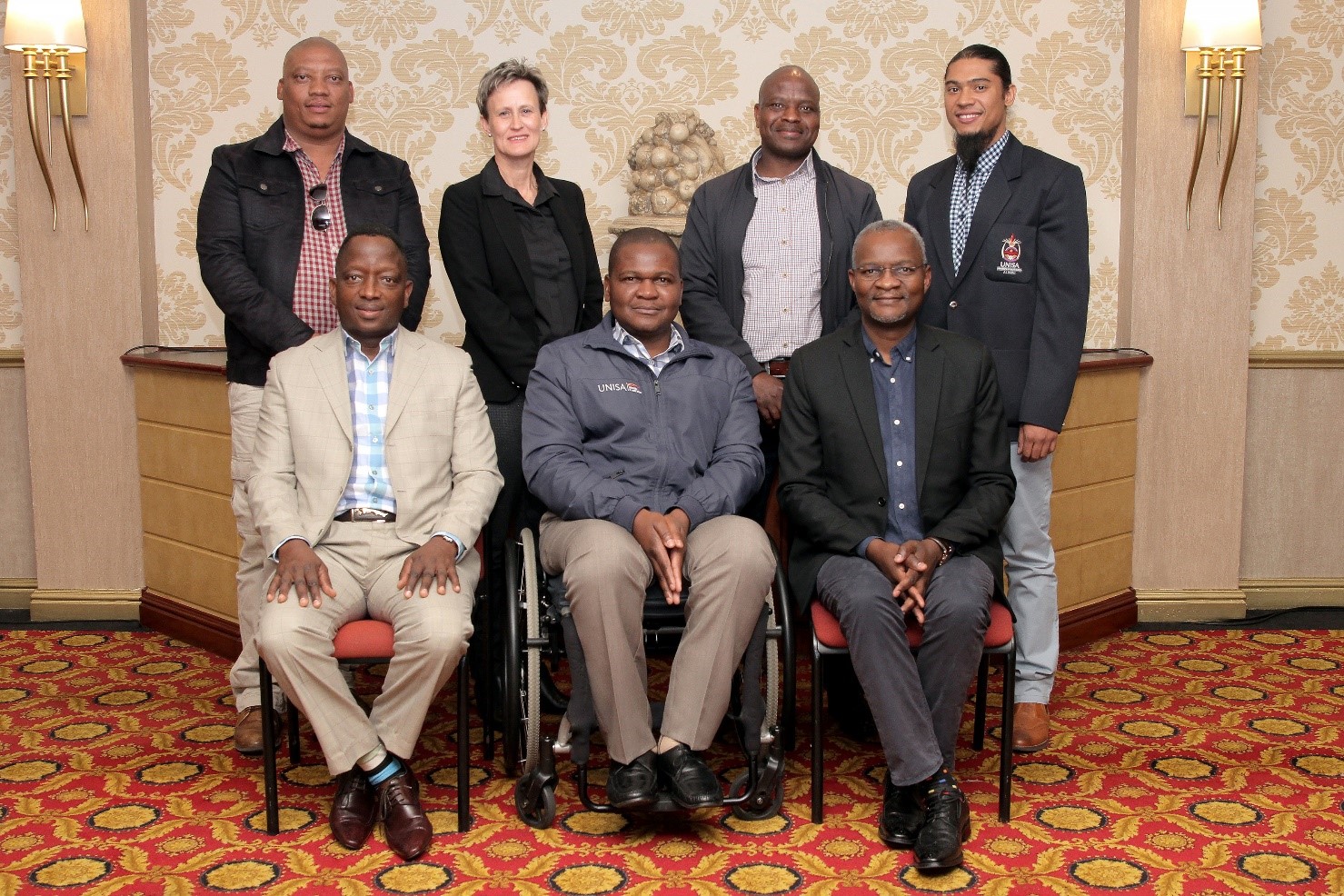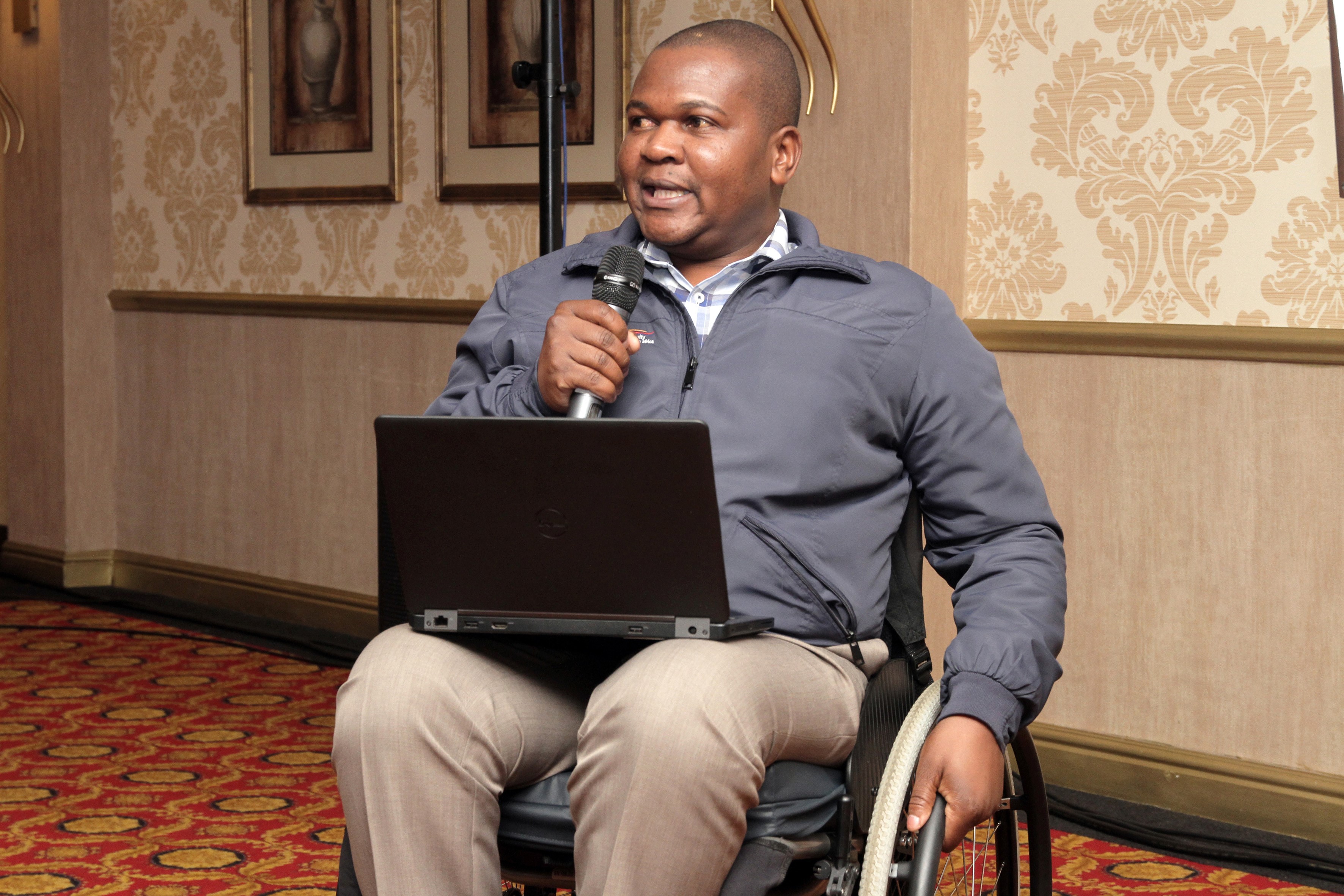News & Events
Time to shine with persons with disabilities

Front row (from left to right): Dr Phasoane Mokgobu: Vice-Principal: Institutional Advancement, Mr P Nkuna (ARCWiD) and Mr David Farirai: Director: Institutional Advancement Back row (from left to right): Mr Sipho Malefo: Centre for Graduate Studies: Masters and Doctoral Support, Ms Erin Naude: Gauteng Regional Office, Mr Frankie Mojapelo: Deputy Director: Institutional Advancement and Mr Moeneeb du Plessis: Alumni Relations
This year’s theme for Casual Day, “time to shine”, set out to achieve many things, to highlight and showcase the brilliance that’s created when South Africans unite behind a truly great cause and to encourage people to shine their light and take up their rights.
It was just what inspired the Alumni Chapter Breakfast in Ekurhuleni on
6 September 2019 that took place at Emperor’s Palace, Kempton Park.
No longer are persons with disabilities to be relegated to the shadows. The Speaker at the event was Mr P Nkuna from the Advocacy & Resource Centre for Students with Disabilities.

Mr P Nkuna (Academic Support Officer: Advocacy & Resource Centre for Students with Disabilities (ARCSWiD)
“In line with UNISA’s Strategy, the mission of ARCSWiD is to create and enable a teaching and learning environment that will lead to the full participation and equalisation of opportunities for students with disabilities,” said Mr Nkuna.
Mr Nkuna further mentioned that there are two areas of focus, namely Student Support and Administration, which mainly focus on assisting with registration for students with disabilities and the provision of study material. “ARCSWiD also helps with transcribing assignments and exam scripts.”
The services that students with disabilities can receive from ARCSWiD are referrals to career and counselling services, fee reductions and motivations why students with disabilities should have assistive devices. “Furthermore, we offer study guides and tutorial letters in either Braille, large-print, electronic or audio formats.”
ARCWiD also assists by supplying electronic versions of prescribed books obtained on request from publishers and refer students to the Library Disability Workgroup for recommended textbooks in electronic format.
This year’s Casual Day celebrated 25 years of Casual Days! The R31 million that was raised in 2018 is already spreading light and making an impact across the land… from Limpopo to Muizenberg and from Port Nolloth to St Lucia… a truly heroic achievement.
Mr S Malefo from the Centre for Graduate Studies spoke about the different ways that the
Centre assists alumni and students with their master’s and doctoral qualifications.
Mr Frankie Mojapelo appealed to the alumni to start giving back. “One of the most incredible things about Unisa is the diversity of our students and alumni – you and others who are connected by your education, but who are found all over the world, from every background, in every field. For us, distance and diversity have never been weaknesses but our greatest strengths.”
He shared the following quote by David Everatt and Geetesh Solanki: “Giving’ is not the domain of the wealthy: it is part of everyday life for all South Africans, rich and poor alike.”
Mr Mojapelo shared the statistics for the Ekurhuleni Chapter where only 430 alumni members out of the 51,164 alumni are donating towards Unisa, and appealed to the other alumni to start giving back to the University.
Publish date: 2019/10/18
